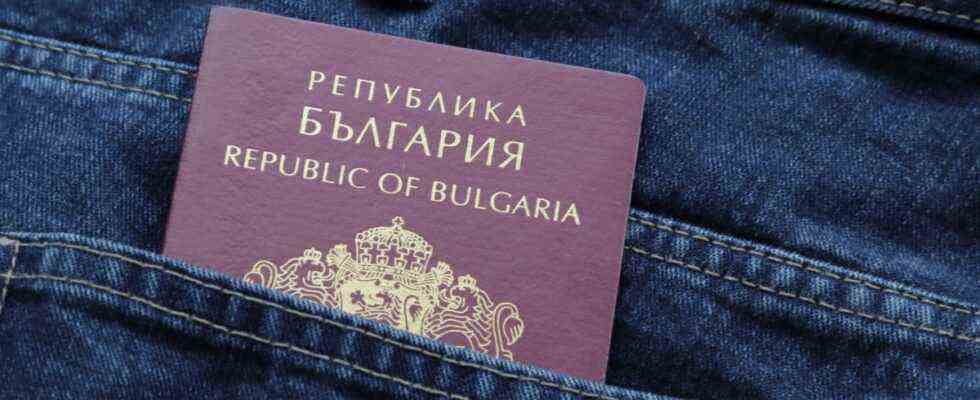The Bulgarian government is preparing to resolve a major bone of contention in its relationship with the European Union. In future, Bulgaria, which has been a member of the EU since 2007, will no longer issue “golden passports”. To this end, the cabinet has just launched a draft law that Parliament still has to vote on.
The golden passport program was created in 2013 by the then government in Sofia. It allows foreigners who bring at least 1.05 million euros into the country to acquire Bulgarian citizenship – and with it an EU passport. In order to meet the criteria, it is sufficient to buy government bonds or create a bank account. In fact, according to a comprehensive official survey, the program has not brought “real investment” to the country.
The current government led by Prime Minister Kiril Petkov took office in December with a promise to fight corruption. Justice Minister Nadezhda Jordanowa said last Saturday that the authorities had recently identified at least five cases of gross violations of the rules in the procedures for acquiring what she calls “investment citizenship”. Her acting predecessor had already pointed out in the summer that there were suspicions of breaches of the rules in 47 cases – that’s more than half of all procedures since 2013 that have resulted in the issuance of a “golden passport”.
“European values are not for sale”
In June 2021, the European Commission asked Bulgaria to end the program and threatened to open infringement proceedings if it did not do so – as already happened against the member states Cyprus and Malta in October 2020. “European values are not for sale,” Justice Commissioner Didier Reynders railed at the time, referring to the practice there of issuing passports for money. Shortly before, research by the television channel Al Jazeera had corroborated the accusation that the Cypriot government had granted citizenship to foreign investors without carefully examining their background. At least 30 people with previous convictions or ongoing criminal proceedings were able to obtain an EU passport.
As a result, Cyprus decided last October to confiscate several dozen passports issued to foreign investors and to recheck dozens more. In this way, Cyprus hopes to avoid a lawsuit before the European Court of Justice.
Malta is also threatened with such a procedure. To acquire Maltese citizenship, applicants must have resided in the country for at least a year, invest €750,000 and donate at least €10,000 to a recognized charitable organization. An international law firm, presenting itself as the “official representative” for the state procedure, advertises Malta on its website as “an attractive place to live or to own a second home”. An additional advantage is traveling with a visa without any problems or even “visa-free travel” to more than 185 destinations.

